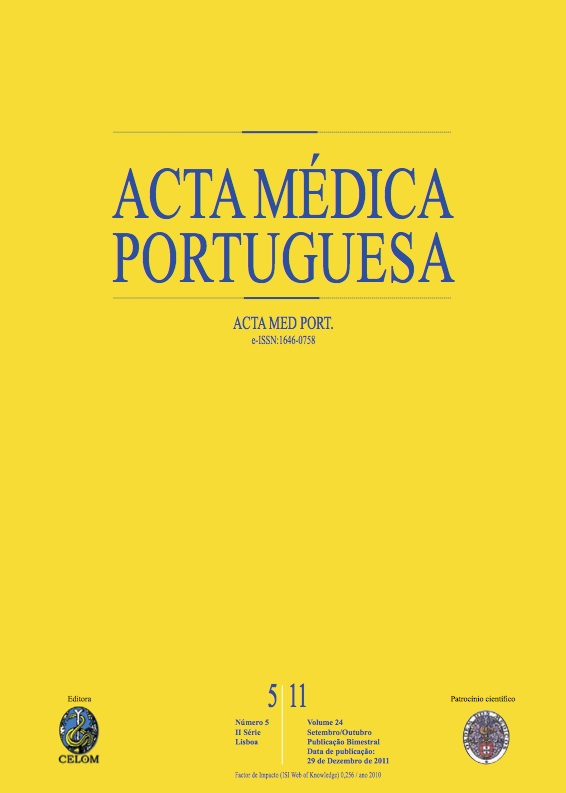Digital ulcers in systemic sclerosis: use of endotheline antagonists.
DOI:
https://doi.org/10.20344/amp.500Abstract
Systemic sclerosis (SSc) is a systemic disease, characterized by fibrosis and vasculopathy, with variable internal organ involvement. Skin is very often involved, namely digital ulcers (DU), seldom treatment resistant, responsible for important functional limitation. The DU can evolve from sclerodactily with superficial ulcers, isquemic lesions, deep necrosis, gangrene, loss of tissue, and consequently, to finger amputation.The authors describe the case of a 36 year old female patient, with SSc diagnosed 6 years previously, with skin, lung and gut manifestations. The patient showed uncontrolled Raynaud's phenomenon (RF), despite the adequate treatment using nifedidpine and general local warming measures, with progressively worsening DU and isquemia, especially in cold seasons. Bosentan, 62.5 mg twice daily was started, and a significant improvement in the peripheral isquemic lesions was achieved. The ulcers' healing was fast, the patient totally recovered function and regained quality of life, and no further lesions developed.The authors review the RF and DU in SSc, as well as the use of bosentan, an endotheline receptor antagonist, and its indications. Although it is not formally approved, the use of bosentan in SS has shown benefits in reducing the incidence of DU, and despite no influence in the healing process, this drug prevents the development of new lesions.Downloads
Downloads
How to Cite
Issue
Section
License
All the articles published in the AMP are open access and comply with the requirements of funding agencies or academic institutions. The AMP is governed by the terms of the Creative Commons ‘Attribution – Non-Commercial Use - (CC-BY-NC)’ license, regarding the use by third parties.
It is the author’s responsibility to obtain approval for the reproduction of figures, tables, etc. from other publications.
Upon acceptance of an article for publication, the authors will be asked to complete the ICMJE “Copyright Liability and Copyright Sharing Statement “(http://www.actamedicaportuguesa.com/info/AMP-NormasPublicacao.pdf) and the “Declaration of Potential Conflicts of Interest” (http:// www.icmje.org/conflicts-of-interest). An e-mail will be sent to the corresponding author to acknowledge receipt of the manuscript.
After publication, the authors are authorised to make their articles available in repositories of their institutions of origin, as long as they always mention where they were published and according to the Creative Commons license.









